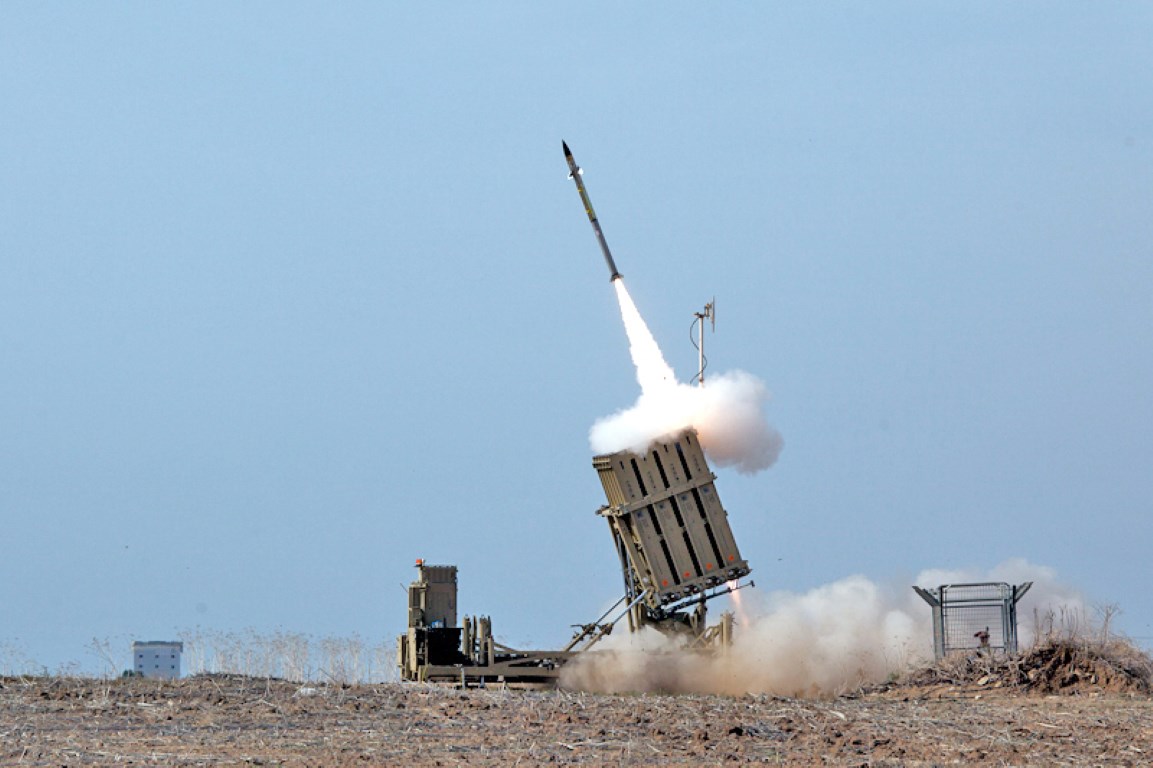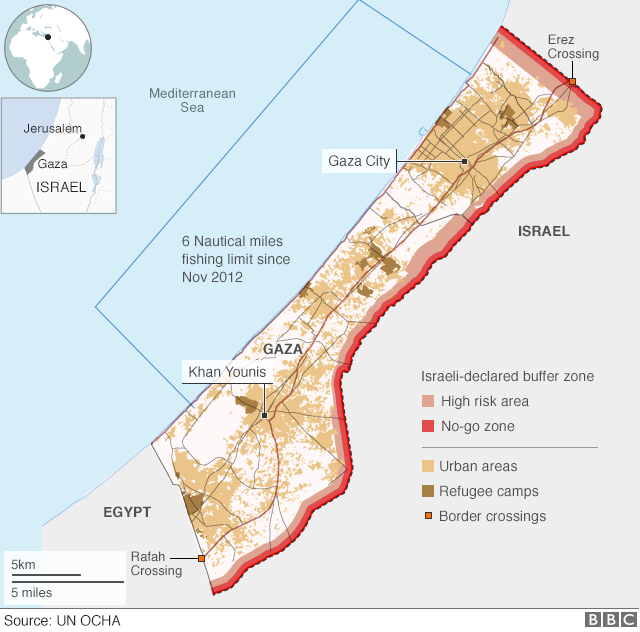Israel launches Gaza strikes
March 17, 2019 | Expert Insights

Israeli military aircraft bombed Hamas targets in the Gaza Strip early, hours after two rockets were launched at Tel Aviv in the first such attack since the 2014 war.
Background
Israel is a country in Western Asia, located on the south-eastern shore of the Mediterranean Sea and the northern shore of the Red Sea. It has land borders with Lebanon to the north, Syria to the northeast, Jordan on the east, the Palestinian territories of the West Bank and the Gaza Strip to the east and west, respectively, and Egypt to the southwest.
The Israeli–Palestinian conflict is the ongoing struggle between Israelis and Palestinians that began in the mid-20th century. The origins of the conflict can be traced back to Jewish immigration and sectarian conflict in Mandatory Palestine between the Jews and Arabs. It has been referred to as the world's "most intractable conflict", with the ongoing in the West Bank and the Gaza Strip tussle reaching 52 years.
The 2014 Israel–Gaza conflict also known as Operation Protective Edge was a military operation launched by Israel on 8 July 2014 in the Hamas-ruled Gaza Strip. Following the kidnapping and murder of three Israeli teenagers by Hamas members, the IDF conducted Operation Brother's Keeper to arrest militant leaders, Hamas fired rockets into Israel and a seven-week conflict broke out. The Israeli airstrikes and ground bombardment, the Palestinian rocket attacks and the ground fighting resulted in the death of thousands of people, the vast majority of them Gazans.

Analysis
Tel Aviv has launched a new offensive on Gaza to target suspected Hamas locations in apparent retaliation for rocket attacks in Israeli territory. Following the overnight exchanges, sirens sounded again in Israeli border towns after dawn broke.
The Israeli military said it's Iron Dome defence system intercepted all but one of six more missiles that were fired at Israel. In a statement, the Israeli military said it had struck “approximately 100 military targets” belonging to Hamas, the Islamist militant group which controls Gaza. The statement included photographs of several sites the military said it targeted, including what it called the headquarters of Hamas’s West Bank operations, a rocket manufacturing site, and a naval post which it described as a weapons depot.
Palestinian news media reported strikes throughout Gaza, from Rafah in the south to the north of the densely populated coastal strip that is home to two million Palestinians. Some of the buildings targeted had been evacuated as a precaution, as Hamas had expected an Israeli response.
Health ministry officials in Gaza said two people, a man and a woman, were wounded when their house was damaged in Rafah in the early morning. Witnesses said powerful explosions from the air strikes rocked buildings in Gaza and lit the skies over targeted sites. That salvo caused no casualties or damage, missing built-up areas. But it rattled Israeli nerves ahead of an April 9 election in which Prime Minister Benjamin Netanyahu is seeking a fifth term on the strength of his national security credentials.
Explosions were heard in Tel Aviv and witnesses said interceptor missiles had detonated - although the military said no rockets were shot down. This was the first such attack on the city since the 2014 Gaza war between Hamas and Israel. There have been several smaller rounds of fighting, which have since been reined through Egyptian and U.N. mediation. “This was basically a surprise,” military spokesman Brigadier-General Ronen Manelis told Israel Radio.
Manelis said Israel did not yet know who had carried out the rocket launches. But another Israeli military spokesman laid the blame on Hamas on Friday. Hamas denied involvement, saying the launches took place as its leaders met Egyptian delegates about efforts to secure a long-term ceasefire with Israel.
Israeli analysts speculated that Palestinian militants opposed to any deal between Hamas and Israel were behind the rocket attacks. Islamic Jihad and the Popular Resistance Committees, two smaller Gaza armed factions, also denied responsibility. Islamic Jihad’s armed wing said in a statement that it had put its fighters on full alert to respond to Israeli attacks.
Assessment
Our assessment is that Israel’s military actions in retaliation to the rocket strikes must be proportional to the initial attack. We believe that Israel has an undeniable right to self-defence but we also feel that proportionality in response, in accordance with International Law, must be maintained.
Read more:
Image courtesy: Image Courtesy: Israel Defense Forces and Nehemiya Gershoni נחמיה גרשוני (see also https://he.wikipedia.org/wiki/%D7%A7%D7%95%D7%91%D7%A5:Flickr-IDF-IronDome-in-action001.jpg ) (https://commons.wikimedia.org/wiki/File:Flickr_-_Israel_Defense_Forces_-_Iron_Dome_Intercepts_Rockets_from_the_Gaza_Strip.jpg), „Flickr - Israel Defense Forces - Iron Dome Intercepts Rockets from the Gaza Strip“, https://creativecommons.org/licenses/by-sa/3.0/legalcode








Comments